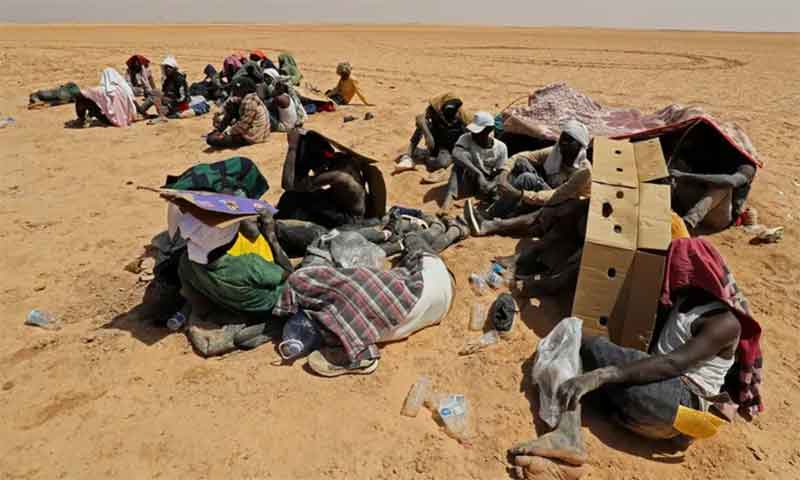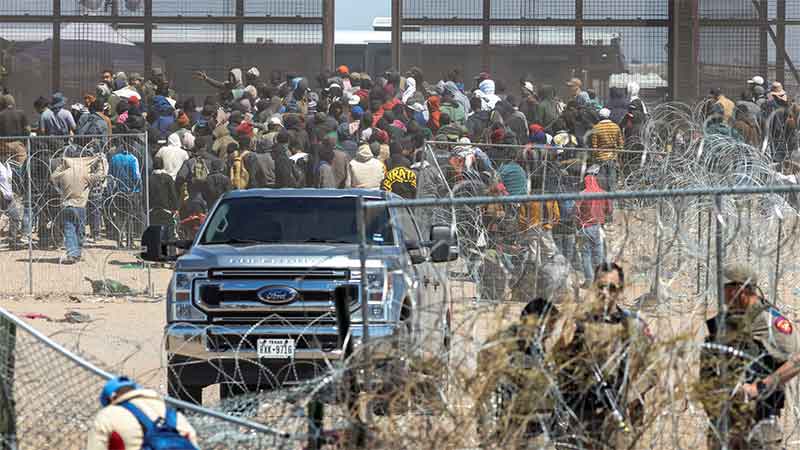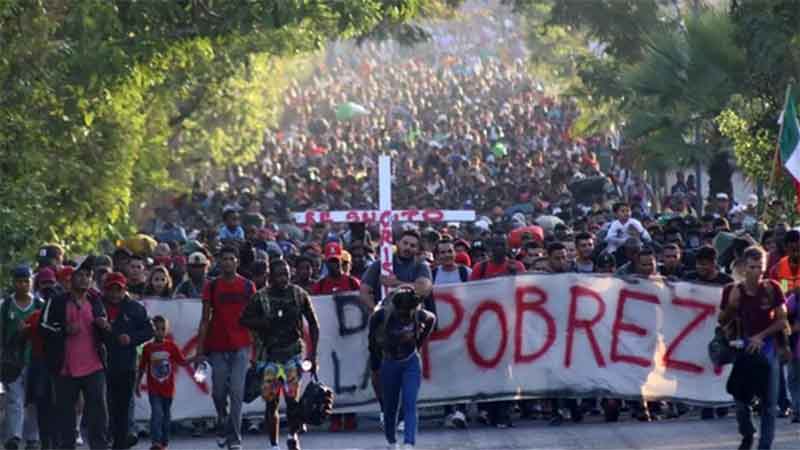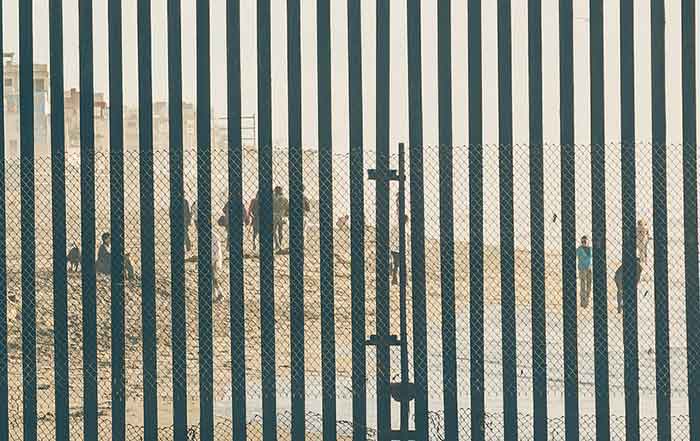
Death of migrants in the English Channel has hit headlines as “worst disaster on record” with France and United Kingdom’s “war of words” marking a “low point” in their ties, a “humanitarian crisis” and so forth. Who is to be blamed for this tragedy? Little importance has been given to the hard reality that increase in migrants being desperate for better opportunities may not have reached this level if countries of most had not been struck by Arab Winter. Yes, this draws attention to their being targeted by external powers- in the name of Arab Spring – trying to impose so-called democracy in their homelands. Virtually dead silence of major powers to what Arab Winter has spelt for affected people can hardly be ignored. In fact, English Channel tragedy cannot be viewed as simply one for which either UK, France or both are to be blamed. Some importance also needs to be given to reasons responsible for “migrants” being desperate to move from beyond their borders.
What is also stunning is that religious identity of migrants has been virtually ignored. Maybe, it is assumed that their national identity is sufficient to understand as their being Muslims. Perhaps. Paradoxically, religious identity of Muslims is largely sidelined when they tend to be victims but is highlighted if some of them are viewed as criminals and are instantly labeled as Islamic terrorists. This also draws attention to marked absence of any “Muslim” voice regarding Channel tragedy. And this raises question about whether there is really any “Muslim” voice?
Practically speaking, given the diversity – regional and cultural – among Muslims spread across the world, the question of there being any one voice representing them all may be viewed as non-existent. Nevertheless, that concerned non-Muslims as well as Muslims have not refrained from voicing their grievances, including that of Palestinians, those being targeted communally and also against those abusing Islam cannot be ignored.
The preceding point bears significance in lieu of UAE Princess Hend Al Qassimi’s recent objection against inclusion of an Indian anchor from an international seminar in her country on ground of his being an “intolerant terrorist,” “Islamophobe” and so forth. It seemed at least suggestive of a strong voice being raised against those entertaining anti-Muslim bias. Clearly, this indicates that communalism and/terrorism targeting Muslims is not being ignored.
Undeniably, communication boom has enhanced importance as well as reach of media, making world a smaller place at this level. The irony of this reality lies in it being applicable practically in most parts of the world. What is communicated in XYZ country can bear significance in other countries for humanitarian, religious, economic as well as several other reasons. Paradoxically, this hard truth was not even considered by the controversial anchor when he allegedly used anti-Muslim communal language leading to his being considered a “terrorist”. Clearly, greater importance was given by him to probably political reasons prompting him to use language which he viewed would appeal to right-winged Indians, entertaining communal bias against Indian Muslims, Christians and other minorities.
Had the princess not chosen to express her reservations against him being invited to UAE for the international conference backed by specific reasons, in all probability, the anchor’s “communal” vibes would have not hit headlines in international circles. Yes, irrespective of various other communal issues have been paid similar attention or not, raising a voice against the controversial anchor has most probably raised quite a few eye-brows among those given to indulge in similar practices. In addition, organizers of other international conferences are likely to pay greater importance to whether participants invited by them entertain communal bias or not. In fact, this aspect should be given substantial importance by not such Islamic states but also by democratic, secular countries in lieu of their socio-politico values as well as humanitarian concerns.
Each religion in essence gives utmost importance to humane values. Propagating either communalism and/or terrorism is hardly in line with basic principles of any religion. This draws attention to stereotyped notions still prevalent easily linking Islam, Hinduism and Sikhism with terrorism. This scribe has frequently questioned this tendency. On one side, those indulging in aggressive violence try and justify their activities by adding “religious” label to it. The tragedy is “criminals” attempting this are easily believed and their “justification” is held as “genuine”. At the same time, the prevalent tendency to easily link religious practiced by an alleged criminal with terrorism particularly in the West cannot be ignored. If the accused person is a Muslim, Sikh, Hindu, a Brown or Black, his/her religion/race is instantly labeled as terrorist. It is this tendency that has over decades led to misconceptions such as Islamic terrorism, Hindu terrorism and so forth.
True, now and then incidents of communal violence keep surfacing in India. But what is indulged in by a few should not be viewed as representative of communal behavior of their entire religious community. If this was the case, India would not have been home to second largest population of Muslims in the world. Less than a percentage of the country’s population indulged in demolition of mosque in Ayodhya in Uttar Pradesh on December 6, 1992. Unfortunately, media erred in most parts by labeling the incident and accompanying riots as Hindu terrorism.
Against this backdrop, the UAE princess has exercised wisdom in questioning “communal” practices of only the controversial Indian anchor. She raised her voice as a Muslim, which needs to be appreciated from several angles. One, given the negative notions easily linked with Islam, these should certainly be questioned. At the same time, no religion or religious community has been viewed (by her) along negative lines. Third, perhaps, her voice may act as an eye-opener playing at least some role in prompting other media anchors indulging in similar communal behavior. Chances of this shaking silence on impact of Arab Winter may be viewed as limited. Nevertheless, it has certainly helped in creating waves, that Muslim voice cannot be totally ignored. Besides, English Channel tragedy demands deliberation from this angle also!
Nilofar Suhrawardy is a senior journalist and writer with specialization in communication studies and nuclear diplomacy. She has come out with several books. These include:– Modi’s Victory, A Lesson for the Congress…? (2019); Arab Spring, Not Just a Mirage! (2019), Image and Substance, Modi’s First Year in Office (2015) and Ayodhya Without the Communal Stamp, In the Name of Indian Secularism (2006).















































